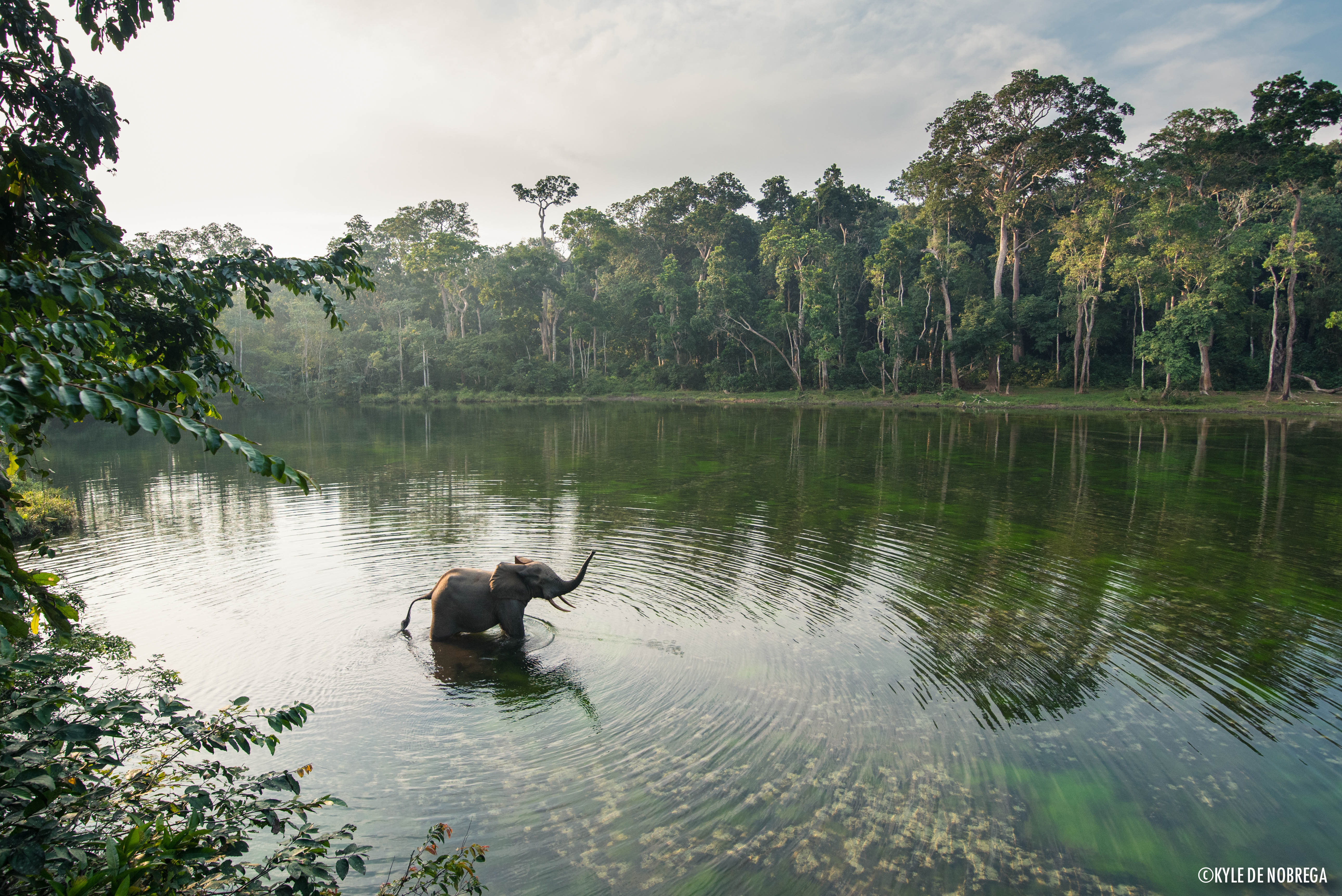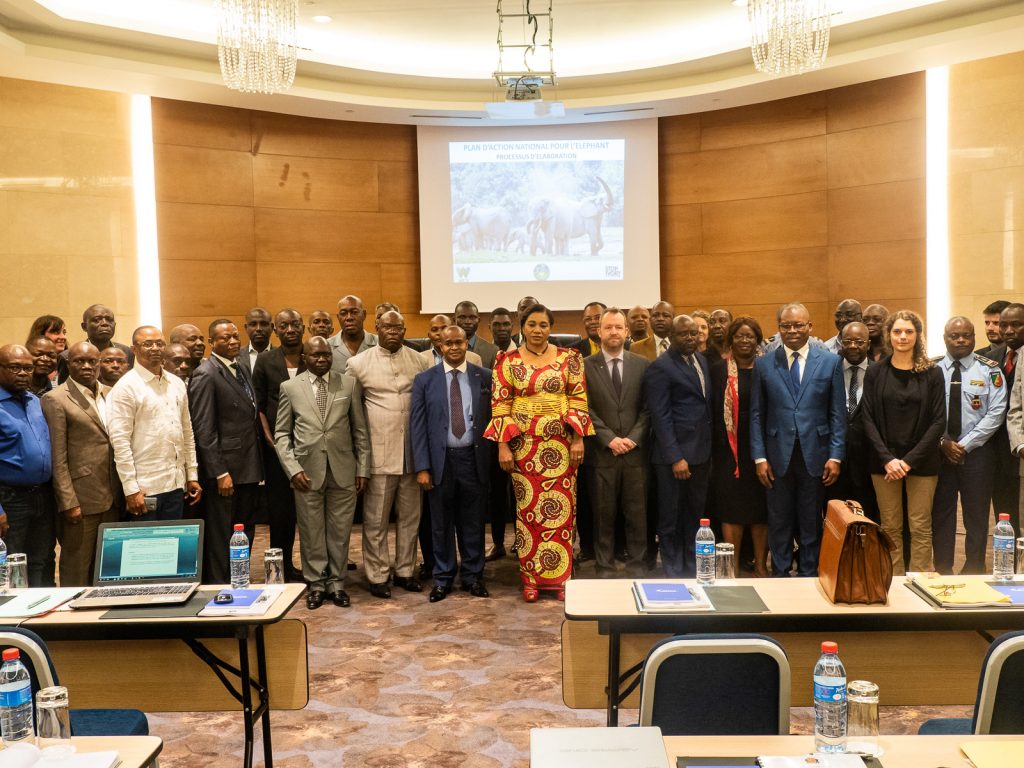
World Elephant Day 2018
They carve paths through the forest and disperse the seeds of gigantic trees. Their disappearance would not only mean the loss of our planet’s largest land mammal, but would also drastically change the habitat of hundreds of other species. Today is World Elephant Day, a day to reflect on the plight of the giants of our forests and savannahs, raise awareness and take a stand to make a difference for their future.
The Republic of Congo harbours a quarter of the world’s remaining forest elephants. A WCS-led study showed that between 2003 and 2013 elephant populations declines by 65% across central Africa, primarily to fuel the ivory trade. A recent assessment of wildlife crime cases brought to the Congolese courts showed that 70% of cases involved elephant poaching or ivory trafficking, confirming the harsh reality of the threats to the country’s elephants. The Congo is taking a stand to tackle these threats head on through improved protected area management, stricter enforcement of wildlife laws and national policies for the protection of elephants.
On Friday the 3rd of August 2018 the Republic of Congo adopted its National Action Plan for Elephants (NAPE), a huge step forward for elephant conservation in the country. The workshop to validate and adopt the NAPE, held under the patronage of Mrs Rosalie Matondo – the Minister of Forest Economy, Sustainable Development and Environment, and with the support of Stop Ivory, under the Elephant Protection Initiative, brought together over 60 participants representing the Congolese government, the private sector and civil society. Covering the coming ten years, the NAPE outlines the strategy to: combat elephant poaching; conserve elephant habitat, reduce human-elephant conflict; raise awareness within public institutions and local and indigenous communities; as well as ensure collaboration between States.

The Republic of Congo has been at the fore of conservation leadership in Central Africa for many years, protecting its wildlife under innovative management models. In 2016 Congo became the 11thstate to join the elephant protection initiative, anAfrican-led, results based conservation program working to eradicate the ivory trade and stop the continued slaughter of the continent’s elephants by poachers. Representatives of the Congolese Government and conservation authorities will attend the 70thmeeting of the CITES Standing Committee, of which Congo is a permanent member, as well as the International Conference on Wildlife Crime in October this year to assess progress in the fight to protect the country’s elephants, and identify the next steps going forward.


Pingback: WCS Congo 2018 highlights – WCS Congo blog